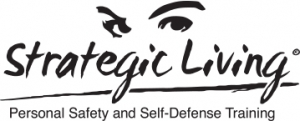One student told me that when a guy on the street bumped into her friend — she’s sure deliberately — the friend apologized right away and asked the guy if he was OK. I had to stop the story to make sure I heard it right. So this guy, on purpose, almost knocked her over and SHE said sorry? Yup, I heard it right.
Apologies carry a complicated burden. A heartfelt apology can mend fences and relationships. A sincere apology can save face and begin to heal hearts. An inauthentic apology can infuriate the receiver. And a social apology can superficially appease others and make you seem more likeable — really?
I began to consider apologies after reading
this article, where author Lindsay King-Miller describes how offering apologies has totally transformed how others relate to her. Got some pithy quotes, too:
“So these days I apologize a lot. Everyone tells me all the time that I don’t need to, that I have nothing to be sorry for, that I shouldn’t be so insecure, but in between they tell me how likable I am. How personable. How pleasant. How I set people at ease.
“Apologizing is a survival skill in a society where women are penalized, personally and professionally, for being abrasive, for speaking their minds, for not smoothing their sharp edges down, for not fitting in. Apologizing is a way of saying I know I’m smart but I don’t mean to be. I know I take up space but I’m trying not to. I want you to like me more than I want to be right.These are things the world demands from women. If you don’t provide them, it punishes you. Before I started apologizing I heard all the time, secondhand, that people hated me. That this girl or that girl thought I was a bitch. That I was too aggressive and guys were scared of me. I never hear that anymore.
“People tell me that higher self-esteem would help me apologize less. I think No, you don’t understand. I have to apologize because I can’t let people know how awesome I actually think I am. The world is not kind to women who love themselves as much as I do — certainly not fat, queer, socially awkward girls. I am not supposed to have confidence. I am not supposed to think my opinions matter.”
Personally, I had never thought of apologizing for my opinions as a way to make others comfortable. I despise the idea that anyone would expect me to express regret for being smart or projecting confidence. But it happens, and consequences happen.
King-Miller describes her younger self as brash, confrontational, emotionally needy, and sensitive. She says she hated how people would shut her out to not deal with her intensity and neediness. At some point, when in her 20s, she found herself apologizing for all the crying, saying that she was over-sensitive, it was no big deal. And she found that was acceptable. And people liked her better.
I do not know King-Miller. I’ve never met her, and only know what she says about herself in this one article. But I do know intelligent, articulate, and opinionated women — who I would not characterize as brash, confrontational and emotionally needy — who were too readily dismissed as abrasive when they spoke uncomfortable truths (and most truths will make someone uncomfortable). Assertive women can get labeled aggressive. And there’s a small yet vocal group of trolls who are eagerly watching to pull off-balance any women who dare to “lean in.”
I don’t believe that women’s only two options are to blurt bluntly or cower contritely. Yes it takes some art and energy coming up with more appropriate and effective ways of expressing myself. I accept the fact that there always will be individuals who just will not like what I have to say, regardless of how I couch it. And I am a native New Yorker, so there are limits on how much I’m willing to care about others’ opinions. But the article did get me thinking about how saying sorry can be used to stay safe.
Yes, the apology can be a self-defense strategy. It can be a tool of camouflage, of distraction, of social disguise. It has a VERY big role as a de-escalation tactic. In rare instances you have to chose between being right (and maybe physically hurt) and emotionally available (which may manifest as sympathetic, empathetic, or apologetic). When you make safety your priority, learning the art of apology can pay off. That’s good self-care, an essential component of your toolkit.
To make the choice that best suits your goals, you want to have all options at your disposal. When you have to take out your self-defense toolkit — whether physical or verbal or emotional responses are called for — recognize that sometimes your choices are between bad and worse. Do you want to pick your best response, or will you let someone else will decide for you?
